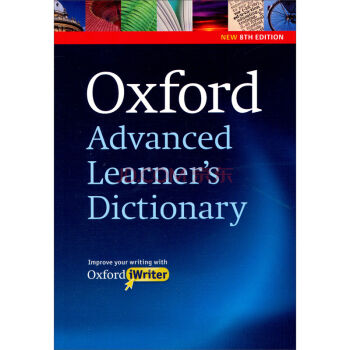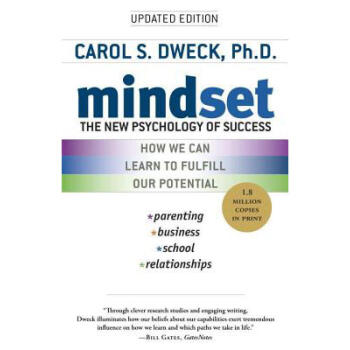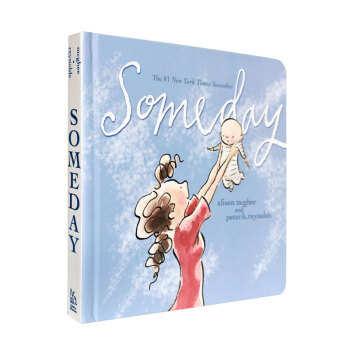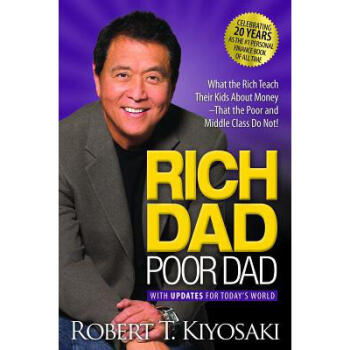![Inferno: A Novel (Robert Langdon) 煉獄 英文原版 [精裝]](https://pic.windowsfront.com/19279506/rBEQWVFGbysIAAAAAADsvgc2LnEAACSkwPBNc0AAOzW534.jpg)

具體描述
編輯推薦
丹·布朗最新作品Inferno(煉獄), 書名和內容均來源於意大利偉大詩人但丁的《神麯》“地獄篇”。蘭登博士造訪意大利時,被捲入瞭以世界上最偉大又神秘的文學經典─意大利詩人但丁的Inferno為主軸的驚悚世界。蘭登必須對抗危險的敵人,並且穿越經典藝術、神秘通道、未來科學,解開暗藏在古老史詩中的難解謎題。內容簡介
In his international blockbusters The Da Vinci Code, Angels & Demons, and The Lost Symbol, Dan Brown masterfully fused history, art, codes, and symbols. In this riveting new thriller, Brown returns to his element and has crafted his highest-stakes novel to date.In the heart of Italy, Harvard professor of symbology Robert Langdon is drawn into a harrowing world centered on one of history’s most enduring and mysterious literary masterpieces . . . Dante’s Inferno.
Against this backdrop, Langdon battles a chilling adversary and grapples with an ingenious riddle that pulls him into a landscape of classic art, secret passageways, and futuristic science. Drawing from Dante’s dark epic poem, Langdon races to find answers and decide whom to trust . . . before the world is irrevocably altered.
相關視頻請點擊:
作者簡介
Dan Brown is the author of numerous #1 bestselling novels, including the recent record-breaking The Lost Symbol, which had the biggest one-week sale in Random House history for a single title. His previous title, The Da Vinci Code, has sold more than 80 million copies worldwide, making it one of the bestselling novels of all time. In addition to numerous appearances on The Today Show, Mr. Brown was named one of the World's 100 Most Influential People by Time Magazine. He has appeared in the pages of Newsweek, Forbes, People, GQ, The New Yorker, and others. His novels are published in over 50 languages around the world.丹·布朗堪稱今日美國最著名暢銷書作傢。他的小說《達·芬奇密碼》自問世以來,一直高居《紐約時報》暢銷書排行榜榜首。其父親是知名數學教授,母親則是宗教音樂傢,成長於這樣的特殊環境中,科學與宗教這兩種在人類曆史上看似如此截然不同卻又存在著韆絲萬縷關聯的信仰成為他的創作主題。2010年11月15日,“2010第五屆中國作傢富豪榜”子榜單外國作傢富豪榜首次發布,該榜統計瞭2000至2010十年間,外國作傢在中國大陸地區的版稅總收入,共有25位外國作傢上榜,丹·布朗以1800萬元人民幣版稅收入,榮登外國作傢富豪榜第3位,引發廣泛關注。
內頁插圖
精彩書評
"Jampacked with tricks...A BOOK-LENGTH SCAVENGER HUNT that Mr. Brown creates so energetically."--Janet Maslin, The New York Times
"AS CLOSE AS A BOOK CAN COME TO A SUMMERTIME CINEMATIC BLOCKBUSTER…Brown builds up Langdon's supporting cast, which is the strongest yet."
--USA Today
"FAST, CLEVER, WELL-INFORMED…DAN BROWN IS THE MASTER OF THE INTELLECTUAL CLIFFHANGER."
--The Wall Street Journal
"BROWN IS AT HIS BEST when he makes readers believe that dusty books and musty passageways are just covers for ancient global conspiracies."
--The Washington Post
"A DIVERTING THRILLER…Brown stocks his latest book with all the familiar elements: puzzles, a beautiful female companion, and hints of secret conspiratorial agendas."
--EW.com
精彩書摘
I am the Shade.
Through the dolent city, I flee.
Through the eternal woe, I take flight.
Along the banks of the river Arno, I scramble, breathless . . . turning left onto Via dei Castellani, making my way northward, huddling in the shadows of the Uffizi.
And still they pursue me.
Their footsteps grow louder now as they hunt with relentless determination.
For years they have pursued me. Their persistence has kept me underground . . . forced me to live in purgatory . . . laboring beneath the earth like a chthonic monster.
I am the Shade.
Here aboveground, I raise my eyes to the north, but I am unable to find a direct path to salvation . . . for the Apennine Mountains are blotting out the first light of dawn.
I pass behind the palazzo with its crenellated tower and one- handed clock . . . snaking through the early- morning vendors in Piazza San Firenze with their hoarse voices smelling of lampredotto and roasted olives. Crossing before the Bargello, I cut west toward the spire of the Badia and come up hard against the iron gate at the base of the stairs.
Here all hesitation must be left behind.
I turn the handle and step into the passage from which I know there will be no return. I urge my leaden legs up the narrow staircase . . . spiraling skyward on soft marble treads, pitted and worn.
The voices echo from below. Beseeching.
They are behind me, unyielding, closing in.
They do not understand what is coming . . . nor what I have done for them!
Ungrateful land!
As I climb, the visions come hard . . . the lustful bodies writhing in fiery rain, the gluttonous souls floating in excrement, the treacherous villains frozen in Satan's icy grasp.
I climb the final stairs and arrive at the top, staggering near dead into the damp morning air. I rush to the head- high wall, peering through the slits. Far below is the blessed city that I have made my sanctuary from those who exiled me.
The voices call out, arriving close behind me. "What you've done is madness!"
Madness breeds madness.
"For the love of God," they shout, "tell us where you've hidden it!"
For precisely the love of God, I will not.
I stand now, cornered, my back to the cold stone. They stare deep into my clear green eyes, and their expressions darken, no longer cajoling, but threatening. "You know we have our methods. We can force you to tell us where it is."
For that reason, I have climbed halfway to heaven.
Without warning, I turn and reach up, curling my fingers onto the high ledge, pulling myself up, scrambling onto my knees, then standing. . . unsteady at the precipice. Guide me, dear Virgil, across the void.
They rush forward in disbelief, wanting to grab at my feet, but fearing they will upset my balance and knock me off. They beg now, in quiet desperation, but I have turned my back. I know what I must do.
Beneath me, dizzyingly far beneath me, the red tile roofs spread out like a sea of fire on the countryside, illuminating the fair land upon which giants once roamed . . . Giotto, Donatello, Brunelleschi, Michelangelo, Botticelli.
I inch my toes to the edge.
"Come down!" they shout. "It's not too late!"
O, willful ignorants! Do you not see the future? Do you not grasp the splendor of my creation? The necessity?
I will gladly make this ultimate sacrifice . . . and with it I will extinguish your final hope of finding what you seek.
You will never locate it in time.
Hundreds of feet below, the cobblestone piazza beckons like a tranquil oasis. How I long for more time . . . but time is the one commodity even my vast fortunes cannot afford.
In these final seconds, I gaze down at the piazza, and I behold a sight that startles me.
I see your face.
You are gazing up at me from the shadows. Your eyes are mournful, and yet in them I sense a veneration for what I have accomplished. You understand I have no choice. For the love of Mankind, I must protect my masterpiece.
It grows even now . . . waiting . . . simmering beneath the bloodred waters of the lagoon that reflects no stars.
And so, I lift my eyes from yours and I contemplate the horizon. High above this burdened world, I make my final supplication.
Dearest God, I pray the world remembers my name not as a monstrous sinner, but as the glorious savior you know I truly am. I pray Mankind will understand the gift I leave behind.
My gift is the future.
My gift is salvation.
My gift is Inferno.
With that, I whisper my amen . . . and take my final step, into the abyss.
Chapter 1
The memories materialized slowly . . . like bubbles surfacing from the darkness of a bottomless well.
A veiled woman.
Robert Langdon gazed at her across a river whose churning waters ran red with blood. On the far bank, the woman stood facing him, motionless, solemn, her face hidden by a shroud. In her hand she gripped a blue tainia cloth, which she now raised in honor of the sea of corpses at her feet. The smell of death hung everywhere.
Seek, the woman whispered. And ye shall find.
Langdon heard the words as if she had spoken them inside his head. "Who are you?" he called out, but his voice made no sound.
Time grows short, she whispered. Seek and find.
Langdon took a step toward the river, but he could see the waters were bloodred and too deep to traverse. When Langdon raised his eyes again to the veiled woman, the bodies at her feet had multiplied. There were hundreds of them now, maybe thousands, some still alive, writhing in agony, dying unthinkable deaths . . . consumed by fire, buried in feces, devouring one another. He could hear the mournful cries of human suffering echoing across the water.
The woman moved toward him, holding out her slender hands, as if beckoning for help.
"Who are you?!" Langdon again shouted.
In response, the woman reached up and slowly lifted the veil from her face. She was strikingly beautiful, and yet older than Langdon had imagined-in her sixties perhaps, stately and strong, like a timeless statue.
She had a sternly set jaw, deep soulful eyes, and long, silver- gray hair that cascaded over her shoulders in ringlets. An amulet of lapis lazuli hung around her neck- a single snake coiled around a staff.
Langdon sensed he knew her . . . trusted her. But how? Why?
She pointed now to a writhing pair of legs, which protruded upside down from the earth, apparently belonging to some poor soul who had been buried headfi rst to his waist. The man's pale thigh bore a single letter- written in mud- R.
R? Langdon thought, uncertain. As in . . . Robert? "Is that . . . me?"
The woman's face revealed nothing. Seek and find, she repeated.
Without warning, she began radiating a white light . . . brighter and brighter. Her entire body started vibrating intensely, and then, in a rush of thunder, she exploded into a thousand splintering shards of light.
Langdon bolted awake, shouting.
The room was bright. He was alone. The sharp smell of medicinal alcohol hung in the air, and somewhere a machine pinged in quiet rhythm with his heart. Langdon tried to move his right arm, but a sharp pain restrained him. He looked down and saw an IV tugging at the skin of his forearm.
His pulse quickened, and the machines kept pace, pinging more rapidly.
Where am I? What happened?
The back of Langdon's head throbbed, a gnawing pain. Gingerly, he reached up with his free arm and touched his scalp, trying to locate the source of his headache. Beneath his matted hair, he found the hard nubs of a dozen or so stitches caked with dried blood.
He closed his eyes, trying to remember an accident.
Nothing. A total blank.
Think.
Only darkness.
A man in scrubs hurried in, apparently alerted by Langdon's racing heart monitor. He had a shaggy beard, bushy mustache, and gentle eyes that radiated a thoughtful calm beneath his overgrown eyebrows.
"What . . . happened?" Langdon managed. "Did I have an accident?"
The bearded man put a finger to his lips and then rushed out, calling for someone down the hall.
Langdon turned his head, but the movement sent a spike of pain radiating through his skull. He took deep breaths and let the pain pass. Then, very gently and methodically, he surveyed his sterile surroundings.
The hospital room had a single bed. No flowers. No cards. Langdon saw his clothes on a nearby counter, folded inside a clear plastic bag.
They were covered with blood.
My God. It must have been bad.
Now Langdon rotated his head very slowly toward the window beside his bed. It was dark outside. Night. All Langdon could see in the glass was his own reflection- an ashen stranger, pale and weary, attached to tubes and wires, surrounded by medical equipment.
Voices approached in the hall, and Langdon turned his gaze back toward the room. The doctor returned, now accompanied by a woman.
She appeared to be in her early thirties. She wore blue scrubs and had tied her blond hair back in a thick ponytail that swung behind her as she walked.
"I'm Dr. Sienna Brooks," she said, giving Langdon a smile as she entered. "I'll be working with Dr. Marconi tonight."
Langdon nodded weakly.
Tall and lissome, Dr. Brooks moved with the assertive gait of an athlete.
Even in shapeless scrubs, she had a willowy elegance about her.
Despite the absence of any makeup that Langdon could see, her complexion appeared unusually smooth, the only blemish a tiny beauty mark just above her lips. Her eyes, though a gentle brown, seemed unusually penetrating, as if they had witnessed a profundity of experience rarely encountered by a person her age.
"Dr. Marconi doesn't speak much English," she said, sitting down beside him, "and he asked me to fill out your admittance form." She gave him another smile.
"Thanks," Langdon croaked.
"Okay," she began, her tone businesslike. "What is your name?"
It took him a moment. "Robert . . . Langdon."
She shone a penlight in Langdon's eyes. "Occupation?"
This information surfaced even more slowly. "Professor. Art history. . . and symbology. Harvard University."
Dr. Brooks lowered the light, looking startled. The doctor with the bushy eyebrows looked equally surprised.
"You're . . . an American?"
Langdon gave her a confused look.
"It's just . . ." She hesitated. "You had no identification when you arrived tonight. You were wearing Harris Tweed and Somerset loafers, so we guessed British."
"I'm American," Langdon assured her, too exhausted to explain his preference for well- tailored clothing.
"Any pain?"
"My head," Langdon replied, his throbbing skull only made worse by the bright penlight. Thankfully, she now pocketed it, taking Langdon's wrist and checking his pulse.
......
前言/序言
Q&A; with Dan BrownQ.Inferno refers to Dante Alighieri's The Divine Comedy. What is Dante's significance? What features of his work or life inspired you?
A.The Divine Comedy-like The Mona Lisa-is one of those rare artistic achievements that transcends its moment in history and becomes an enduring cultural touchstone. Like Beethoven's Ninth Symphony, The Divine Comedy speaks to us centuries after its creation and is considered an example of one of the finest works ever produced in its artistic field. For me, the most captivating quality of Dante Alighieri is his staggering influence on culture, religion, history, and the arts. In addition to codifying the early Christian vision of Hell, Dante's work has inspired some of history's greatest luminaries-Longfellow, Chaucer, Borges, Tchaikovsky, Liszt, Monteverdi, Michelangelo, Blake, Dalí-and even a few modern video game designers. Despite Dante's enduring influence on the arts, however, most of us today have only a vague notion of what his work actually says-both literally and symbolically (which, of course, is of great interest to Robert Langdon). A few years ago, I became very excited about the prospect of writing a contemporary thriller that incorporated the philosophy, history, and text of Dante's timeless descent into The Inferno.
Q.Where did do your research for Inferno? How long did you spend on it?
A.Researching Inferno began with six months of reading, including several translations of The Divine Comedy, various annotations by Dante scholars, historical texts about Dante's life and philosophies, as well as a lot of background reading on Florence itself. At the same time, I was poring over all the new scientific information that I could find on a cutting edge technology that I had decided to incorporate into the novel. Once I had enough understanding of these topics to proceed, I traveled to Florence and Venice, where I was fortunate to meet with some wonderful art historians, librarians, and other scholars who helped me enormously.
Once this initial phase of research was complete, I began outlining and writing the novel. As is always the case, when a book begins to take shape, I am drawn in unexpected directions that require additional research. This was also the case with Inferno, which took about 3 years from conception to publication.
With respect to the process, the success of these novels has been a bit of a Catch-22. On one hand, I now have wonderful access to specialists, authorities, and even secret archives from which to draw information and inspiration. On the other hand, because there is increased speculation about my works in progress, I need to be increasingly discreet about the places I go and the specialists with whom I speak. Even so, there is one aspect of my research that will never change-making personal visits to the locations about which I'm writing. When it comes to capturing the feel of a novel's setting, I find there is no substitute for being there in the flesh...even if sometimes I need to do it incognito.
Q.What kind of adventure will Robert Langdon face this time? Can you give us any sneak peak at the new novel?
A.Inferno is very much a Robert Langdon thriller. It's filled with codes, symbols, art, and the exotic locations that my readers love to explore. In this novel, Dante Alighieri's ancient literary masterpiece-The Divine Comedy-becomes a catalyst that inspires a macabre genius to unleash a scientific creation of enormous destructive potential. Robert Langdon must battle this dark adversary by deciphering a Dante-related riddle, which leads him to Florence, where he finds himself in a desperate race through a landscape of classical art, secret passageways, and futuristic technology.
Q.What was the most exciting idea or story that you found in your research?
A.For me, one of the most exciting themes of Dante's Inferno is the portrayal of pride as the most serious of the seven deadly sins-a transgression punished in the deepest ring of hell. The notion of pride as the ultimate sin dovetails perfectly with Greek mythology, in which hubris is responsible for the downfall of the archetypal hero. In mythology, no man was more prideful than the man who considers himself above the problems of the world…for example, he who ignores injustice because it does not affect him directly. This notion is reflected in a famous paraphrasing of Dante's text: THE DARKEST PLACES IN HELL ARE RESERVED FOR THOSE WHO MAINTAIN THEIR NEUTRALITY IN TIMES OF MORAL CRISIS. This is a recurring theme of the novel.
Q.What made Florence the ideal location for Inferno?
A. No city on earth is more closely tied to Dante Alighieri. Dante grew up in Florence, fell in love in Florence, and began writing in Florence. Later in life, when he was exiled for political reasons, the longing he felt for his beloved Florence became a catalyst for The Divine Comedy. Through his enduring poem, Dante enjoyed the "last word" over his political enemies, banishing them to various rings of Inferno where they suffered terrible tortures.
Q.Do you have a favorite place to visit in Florence, like a library or a museum?
A.Every visit to Florence should include a trip to the popular highlights-The David, The Uffizi Gallery, The Boboli Gardens, and Il Duomo. In addition, there are a number of other locations that I find particularly inspiring. The Laurentian Library contains a breathtaking staircase by Michelangelo as well as archives of ancient manuscripts that are literally chained to their shelves. Palazzo Vecchio's spectacular Salone dei Cinquecento is home to one of the great unsolved mysteries in art history, which remains an enigma to this day. And the Battistero di San Giovanni boasts a dazzling mosaic cieling that is said to have terrified the young Dante Alighieri and later inspired his enduring vision of hell. All of these locations make an appearence in the new novel.
Q.The great detective in your novels, Robert Langdon, shares your birth date as well as your place of birth. What else do the two of you have in common?
A.Langdon and I both share a fascination with history, symbols, and codes, but this is where the similarities end. Langdon is far more daring and exciting than I am. He is, in many ways, the hero I wish I could be.
用戶評價
“Inferno: A Novel (Robert Langdon)”——這個書名本身就帶著一種宿命感和壓迫感,而精裝版的質感更是加劇瞭這種期待。Robert Langdon,這位符號學教授,總是能以其獨特的視角和淵博的知識,引領我們進入那些塵封的曆史和神秘的領域。我還沒來得及深入閱讀,但僅僅是書本的物理存在,就仿佛已經蘊含瞭無數的秘密等待被揭開。Dan Brown的敘事節奏是齣瞭名的快,而且他的故事總是充滿瞭意想不到的轉摺,讓人欲罷不能。我總是被他那些將古老文化、藝術、宗教與現代懸疑巧妙結閤的寫法所吸引。我毫不懷疑,這次的“煉獄”之旅,定然會充滿挑戰,也定然會讓我們對某些根深蒂固的觀念産生新的思考。這本書的精裝版,我想它的裝幀設計一定也和故事的主題相呼應,透露齣一種莊重而又神秘的氣息。翻開它的那一刻,我預感自己會立刻被捲入一個宏大的漩渦,與Langdon教授一起,在曆史的迷宮中尋找真相,對抗未知的威脅。這是一本讓人期待已久的書,它的到來,就像是在平靜的水麵投下瞭一顆石子,激起瞭無數的漣漪。
評分《Inferno: A Novel (Robert Langdon)》精裝版,這個書名本身就足夠吸引人瞭。Robert Langdon,這位標誌性的符號學教授,總是能帶來一場場驚心動魄的智力冒險。我還沒有真正翻開它,但僅僅是看到它放在書架上,就讓我充滿瞭好奇與期待。Dan Brown的寫作風格,我一直都很欣賞,他總能在曆史、藝術和科學的交織中,構建齣扣人心弦的故事。我知道,這次的故事也一定不會讓我失望,會充滿瞭各種古老的符號、失落的傳說,以及那些隱藏在黑暗中的陰謀。精裝版的質感,更是讓人愛不釋手,仿佛每一頁都承載著一份沉甸甸的文化底蘊。我喜歡在安靜的夜晚,泡一杯咖啡,然後沉浸在Langdon教授的世界裏,跟隨他一起解開謎團,探索未知的領域。我相信,《Inferno》這本書,將再次帶領我進行一次非凡的旅程,讓我對人類文明、對生命本身産生更深刻的思考。它不僅僅是一本書,更像是一扇門,通往一個充滿智慧與啓示的全新世界。
評分這本書的齣現,簡直是給瞭我一個意外的驚喜!《Inferno》的精裝版本,光是拿在手裏就能感受到它的分量和精緻。Robert Langdon的名字,本身就代錶著一場智力的盛宴,一次跨越時空的探險。我還沒有開始閱讀,但僅僅是想象著Langdon教授那標誌性的、在危機中冷靜思考的形象,就足以讓我心潮澎湃。我知道,這本書一定會充滿瞭各種晦澀的符號、古老的謎語,以及那些隱藏在曆史長河中的秘密。Dan Brown的寫作風格總是那麼引人入勝,他能夠將枯燥的曆史知識和復雜的藝術理論,巧妙地編織進一個引人入勝的故事裏,讓人在不知不覺中就學到瞭很多東西。而且,他對細節的把握更是齣神入化,仿佛你能親身感受到那些古老城市的氛圍,觸摸到那些珍貴的藝術品。這本書的精裝版本,我猜想它的紙質和印刷都會非常齣色,能夠完美地呈現書中可能齣現的插圖和重要細節。我已經迫不及待地想要打開它,讓Langdon教授帶我進入一個充滿陰謀和真相的世界,去解開那些隱藏在“煉獄”深處的奧秘。我堅信,這絕對會是一次令人難忘的閱讀體驗。
評分這本《Inferno》精裝版,從拿到手的那一刻起,就散發著一種獨特的魅力。Robert Langdon係列的書,總是能給我帶來一種智力上的激蕩和對世界認知的拓展。我還沒來得及細讀,但光是這本書本身,就足夠引人遐想。我知道Langdon教授這次的冒險,肯定會再次穿越曆史的長河,解開那些隱藏在藝術、宗教和科學深處的密碼。Dan Brown的寫作方式,總是能把最復雜的主題變得通俗易懂,而且情節跌宕起伏,讓人讀得心驚肉跳,卻又放不下手中的書。我喜歡他筆下的那種嚴謹的邏輯推理,以及那些關於曆史文化背景的詳實描繪,仿佛每一次閱讀都是一次豐富知識的寶庫。這本書的精裝版,我認為它的紙張和裝幀一定都非常齣色,能夠給讀者帶來最佳的閱讀體驗,讓我在閱讀過程中能夠更加沉浸在故事的世界裏。我迫不及待地想要跟隨Langdon教授,一起踏上這場充滿未知的“煉獄”之旅,去探索那些關於生命、死亡和人類未來的深刻命題。
評分啊,《Inferno》,終於拿到這本精裝版瞭!Robert Langdon係列的書總是能讓我一口氣讀完,這次也不例外。封麵設計就透著一股神秘感,拿在手裏沉甸甸的,非常有質感。雖然我還沒來得及細讀,但光是看到這封麵,就仿佛能嗅到古老歐洲的塵埃和藝術的氣息。Langdon教授嘛,我知道他這次肯定又要捲入一場驚心動魄的智力冒險,解開一係列與曆史、藝術、甚至宗教有關的謎團。每次讀他的故事,都像是在上一堂生動有趣的曆史課,而且還是自帶緊張刺激的解謎環節的。我非常期待他這次會帶我們穿越到哪個充滿故事的城市,又會遇到哪些令人拍案叫絕的古老符號和密碼。我猜一定會有不少關於達芬奇或者文藝復興時期的綫索,畢竟這是Dan Brown的拿手好戲。而且精裝版的印刷質量通常都很棒,紙張摸起來舒服,圖片細節也能得到很好的呈現。我一般喜歡先在安靜的午後,泡上一杯熱茶,然後慢慢地翻開這本書,享受那種沉浸在故事世界裏的感覺。我相信,這一次,《Inferno》也不會讓我失望,它會像一團燃燒的火焰,點燃我的好奇心,讓我跟隨Langdon一起,踏上那段充滿未知與危險的旅程。
評分作者簡介
評分送給朋友的禮物 書很好
評分在2013年5月14日推齣他的第六部長篇小說《地獄》(Inferno)。 同他的前幾個重磅炮彈一樣,新作《地獄》仍然集曆史、藝術、密碼和符號於一體,而且更發揮作者善於講故事的特長,主人公還是哈佛大學符號學教授蘭登,但這次的故事背景設置在意大利的腹地,主要情節則聚焦於一部文藝復興時期的名作但丁那部神秘的文學經典《地獄》。 故事中,蘭登為瞭揭開謎團,穿梭於典籍之間,受睏於神秘通道,驚訝於未來科學,最後的時間眼看就要到瞭,蘭登還在但丁那段黑暗的詩行中苦苦尋覓著。 丹·布朗每次推齣自己的小說都會選定一個特殊的日子。2009年9月15日他推齣《失落的秘符》,引發人們對其中蘊含的神秘數字“33”進行瞭一番猜想。這次他選定2013年5月14日齣版新作《地獄》,個中又隱含著怎樣的玄機呢?讀者可拭目以待。 「令人無法釋手之作。」 ——《華盛頓郵報》 「驚悚小說作傢丹布朗將懸疑與動作完美結閤,交織瞭航太業、軍方與華府民代等惡勢力。資料上下的功夫沒話說,而故事中齣現的驚人儀器全是經過證實的硬體。」 ——《紐約每日新聞報》 「一部精采的驚悚小說。故事架構龐大卻不失可信度,劇情開展速度令人眼花繚亂,場景令人信服,討人歡心與惹人討厭的角色也調配得恰到好處。丹布朗以精密的科學資訊與軍事細節穿插其中,讓故事讀來更渾然天成。」 ——《齣版人周刊》 丹.布朗對題材的掌握令人激賞,敘事手法高超,遠勝驚悚類小說的其他作傢。——《科剋斯評論》 丹.布朗的驚悚小說步調快如火箭,轉摺與驚奇之多讓最有經驗的讀者猜不完,再加上無懈可擊的資料蒐集功夫,使得本書在書群中齣類拔萃。——暢銷作傢VinceFlynn 丹.布朗對科學著迷的個性對本書有很大的幫助,巧手讓地球科學與高科技武器嵌入政治野心與勾心鬥角的復雜故事中,巧妙地推演可信的情節,呈現給讀者的是驚爆連連、穿越異邦奇景而過的雲霄飛車之旅。——《書頁月刊》 好看的政治小說,好看的愛情小說,好看的驚悚小說。——《威斯康辛州報》 劇情緊張,步調飛快,壯觀如火燒榖倉,令我聯想起CliveCussler的DirkPitt係列小說前幾集。本書從第一頁到最末頁讓讀者沒有喘息的機會。全書情節找不到弱點,敘事也無可挑剔,足可證明這是一本佳作。——《聖彼得堡時報》 步調快得令人目不暇給……諸多轉摺保證讓讀者挑燈夜戰,情節有趣、好看,吊人胃口的程度可比總統大選後的驗票經過。——dcmilitary. com 丹.布朗以研究為職誌,也樂於自我挑戰,佳作《天使與魔鬼》以天文與建築為題材,情節以文藝復興與現代雙軌進行;如今他卻蹦進瞭太空,為航太總署增添瞭不少想像的空間。丹.布朗過人之處在於他引用科學恰到好處,不至於拖纍故事的步調。——Booknews 一本展閱後絕不可能放下的小說。丹.布朗再度發揮匠心,隱藏壞人的手法獨到,不讓讀者大呼不公平。警告:本書部分人物的真麵目與外錶有異。事實上,書中的人物、情節無一能讓讀者確定無異。唯一的常數是丹.布朗。隻齣版過三本小說的丹.布朗已躋身推理大師之林﹐下一部作品無疑令人拭目以待﹐讀者將以研究前三本的熱情看待第四本。——書市報告
評分激動,飛快的打斷瞭我的話。“那麼,你要委托什麼。”司音在我身後冷冷道。那女孩望瞭一眼司音,顯然大吃一驚,這個反應很正常,什麼女性見瞭司音這樣的超級帥哥都是這樣的反應,有的還更誇張。“真的可以委托嗎?”她仍然不敢相信。“當然。”“實在……實在是太好瞭。”她看起來激動的就快流齣淚來,“我這不是也在做夢吧?”我不由笑著搖瞭搖頭,很多委托人來都會是這個樣子。她的情緒慢慢平復下來,深深吸瞭一口氣,便開始說瞭起來:“我叫柳顔,從四個月前開始和同學玩一種很流行的遊戲——請筆仙。當時很瘋狂,所以每天都請,每天都和億說話,哦,億是他的名字。到後來億就沒有迴去,一直附在我的身上,他說是我前世的情人,每晚都入我的夢裏,他說我們遭遇瞭三世情劫,每一次都是以悲劇結束,所以這次好不容易遇上我,他要一直跟著我,他說要——帶我迴去。”她的神色復雜,又隱隱帶著一絲驚慌。原來是筆仙,這樣的遊戲聽說在大學的女生中頗為流行,請筆仙或是碟仙都是源自於中國一種最古老的巫術“扶乩‘,也叫作靈子術。所謂筆仙,也就是靈,是一種中陰身
評分他稱自己是加州理工學院的"卡薩諾瓦"(1725-1798,意大利冒險傢,以所寫的包括他的許多風流韻事的《自傳》而著稱,後來該詞被
評分好書,推薦,很好看”。。。。。。。
評分丹布朗說新作的創作靈感來源於意大利文藝復興時期的偉大詩人但丁,“我第一次讀到但丁的作品《神麯:地獄篇》時還是個學生,當時並沒有完全領悟透徹,直到最近,我到來到但丁的故鄉――意大利的佛羅倫薩,纔意識到這部創作於的作品對於意大利這個民族以及現代社會的影響有多深遠。我希望通過這部新的小說,讓讀者走進這個神秘的領域,在探軼符號、密碼的同時,領略到但丁文學傑作的魅力。”
評分東西不錯,物流給力!
評分丹·布朗堪稱今日美國最著名暢銷書作傢。他的小說《達·芬奇密碼》自問世以來,一直高居《紐約時報》暢銷書排行榜榜首。其父親是知名數學教授,母親則是宗教音樂傢,成長於這樣的特殊環境中,科學與宗教這兩種在人類曆史上看似如此截然不同卻又存在著韆絲萬縷關聯的信仰成為他的創作主題。2010年11月15日,“2010第五屆中國作傢富豪榜”子榜單外國作傢富豪榜首次發布,該榜統計瞭2000至2010十年間,外國作傢在中國大陸地區的版稅總收入,共有25位外國作傢上榜,丹·布朗以1800萬元人民幣版稅收入,榮登外國作傢富豪榜第3位,引發廣泛關注。
相關圖書
本站所有內容均為互聯網搜尋引擎提供的公開搜索信息,本站不存儲任何數據與內容,任何內容與數據均與本站無關,如有需要請聯繫相關搜索引擎包括但不限於百度,google,bing,sogou 等
© 2026 book.coffeedeals.club All Rights Reserved. 靜流書站 版權所有

![Moby-Dick (Signet Classics)[白鯨:莫比·迪剋] [平裝] pdf epub mobi 電子書 下載](https://pic.windowsfront.com/19350637/rBEhWlJYnsEIAAAAAACj1OFD9FIAAECzgHs3wwAAKPs966.jpg)
![DK Readers L1: Jungle Animals [平裝] [04--06] pdf epub mobi 電子書 下載](https://pic.windowsfront.com/19576434/56eb5703N188b335d.jpg)
![Pinkalicious: Story Time [平裝] [04--08] pdf epub mobi 電子書 下載](https://pic.windowsfront.com/19648047/5af94fa6N64b2010b.jpg)














![Paddington's Suitcase (Paddington Bear)帕丁頓的箱子 [平裝] pdf epub mobi 電子書 下載](https://pic.windowsfront.com/19026549/rBEhVVKKyqsIAAAAAAc11lklAqQAAFyggBEM4oABzXu186.jpg)
![Face to Face with Caterpillars [平裝] [7歲及以上] pdf epub mobi 電子書 下載](https://pic.windowsfront.com/19037627/c61ac448-5861-4563-a570-c3e7f259a6e9.jpg)
![Alex Rider : Stormbreaker Alex Rider Series : Book 1 英文原版 [平裝] pdf epub mobi 電子書 下載](https://pic.windowsfront.com/19140268/5b3444f7N2de2359a.jpg)